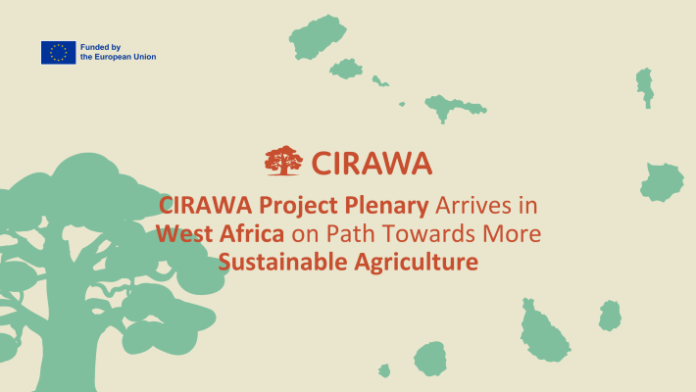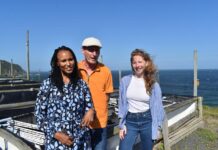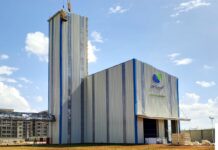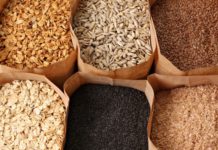CIRAWA will host its 2nd Consortium Meeting from 28 February to 2 March 2024, in Santo Antão, Cape Verde. The gathering in Porto Novo will bring together 14 partners from nine countries, all united in their commitment to improve food nutrition, local livelihoods, and ecosystem health for small-scale farmers in West Africa. CIRAWA is a four-year, EU-funded project focused on innovative agroecological solutions to build climate resilience in Cape Verde, Ghana, Senegal and The Gambia.
Cape Verde, an island nation, is witnessing the effects of climate change. The country’s agricultural sector, which mainly comprises family subsistence farms, is particularly vulnerable to climate challenges and local communities must work together towards climate solutions. It is in this sense that the CIRAWA gathering will serve as an opportunity for the project to expand its network and forge closer ties with local associations to plan for a more climate resilient future. This will be done by focusing on the four innovative agroecological approaches that are emphasized by CIRAWA: agrowaste valorisation, phytoremediation, quality seeds and land management practices.
During the Cape Verde meeting, participants will take part in two field trips to explore different agroecological associations: AJAZPUN (Associacao dos Jovens Agricultoresda Zona Peri-Urbana de Porto Novo) and AMUPAL (Associação das Mulheres do Planalto Leste). AJAZPUN and AMUPAL are projects that promote agricultural – as well as economic – improvements for women in Cape Verde through training geared towards the sustainable tourism sector.
Both projects have been praised for their positive influence on the area, which is why CIRAWA intends to use the field trips to understand the various agroecological techniques developed on Santo Antão Island, discuss sustainable farming practices, and exchange knowledge.
Additionally, participants will take part in workshops focused on raising awareness and engaging with local communities. Partners will learn effective communication strategies, specifically emphasising community engagement to advocate for agroecology. This session will facilitate networking among participants so they can share experiences and collaborate to develop actionable communication plans for agroecology campaigns.
“Gathering for the 2nd CIRAWA meeting this time in Cape Verde, we will be focused on helping farmers and solving challenges. With partners from nine countries, we’re working together to make farming more resilient in front of climate changes in West Africa.”Silvia Gómez Valle, CARTIF. Project coordinator
By the end of the 2nd Consortium Meeting, agroecological strategies will be newly evaluated through the fresh knowledge gained through the field trip and one-on-one conversations with Cape Verdean associations. Thus, CIRAWA can play its part of creating a climate resilient Cape Verde more efficiently with close connections to the local network of farmers, innovators, and associations.








